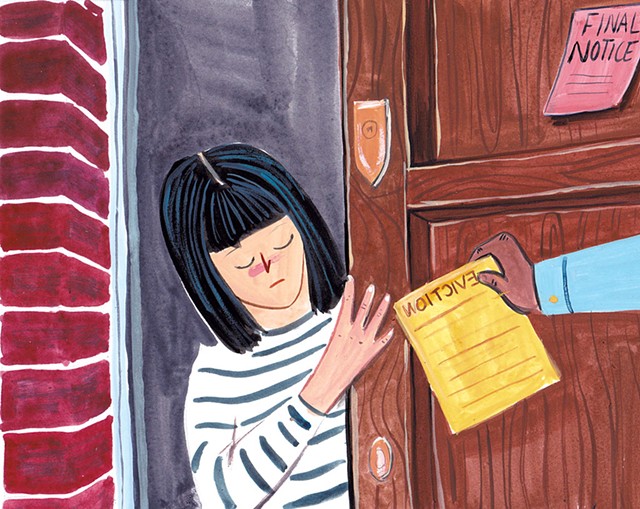A Vermont legislative panel has fast-tracked more than $140 million in federal relief spending — all of which must be used on housing assistance — as it seeks to get the money out the door ahead of a fall deadline.
Legislators on the Joint Fiscal Committee voted Thursday in favor of a Gov. Phil Scott administration proposal detailing how Vermont will spend $200 million in relief aid headed its way under a federal package passed late last year.
As of now, that money can only be used to provide emergency rental assistance, utility assistance and “other housing services," such as counseling and mediation services between tenants and landlords. Vermont is required to spend at least 65 percent of its haul prior to the end of September or else the feds could claw it back and redistribute it to other states.
"Time is of the essence," Josh Hanford, Vermont's Housing and Community Development Commissioner, wrote to the committee earlier this month when proposing how the money should be spent.
The committee largely followed Hanford's recommendations, though it decided to hold back $53 million — twice what he had suggested — in a reserve fund, with the idea that the Biden administration may eventually offer flexibility in how the money can be spent.
Among the spending approved Thursday was $12.7 million for an existing utility assistance program, $15 million to help people experiencing homelessness and $9 million for "other housing services," which might eventually include counseling and mediation services for tenants and landlords.
But the most significant chunk of change — $110 million — will be used to prop up a rental payment program similar to one established last year using CARES Act funds. That program, which dealt out $21 million over the summer and fall, ran out of money in December, meaning struggling Vermonters have gone several months without access to such assistance.
The new rental assistance program will operate largely the same as last year's: It will require renters to prove the pandemic is the reason they need assistance and will direct payments directly to landlords, though the money can be given to a tenant if a landlord refuses to accept it directly.
There are several key differences, however, which will make it both easier
and harder to spread the money around in the new program.
On one hand, the new program offers a forward-looking approach the old program lacked: In addition to applying for back rent, renters already caught up on their payments could seek money for future rent. Grants will be divided in three-month increments, and renters can apply up to 12 months in total, with the potential for a three-month extension after that.
But while funding in the previous program could be used on back rent pre-dating the pandemic, the new one can't. And whereas last year's had no means testing, the new one will only be available to people who earn no more than 80 percent of the regional median income.
Still, state officials estimate that roughly 50,000 renters could be eligible even after the income restrictions are set. "The need is out there," Hanford told
Seven Days on Thursday. "We believe we can spend this money."
With funding now approved, the state will contract with the Vermont State Housing Authority to set up the new program. The authority ran last year's assistance program but plans to contract with a third-party vendor this time around given the anticipated demand, according to executive director Richard Williams. He said he hoped to have payments flowing within the next four to six weeks.

















Comments
Comments are closed.
From 2014-2020, Seven Days allowed readers to comment on all stories posted on our website. While we've appreciated the suggestions and insights, right now Seven Days is prioritizing our core mission — producing high-quality, responsible local journalism — over moderating online debates between readers.
To criticize, correct or praise our reporting, please send us a letter to the editor or send us a tip. We’ll check it out and report the results.
Online comments may return when we have better tech tools for managing them. Thanks for reading.